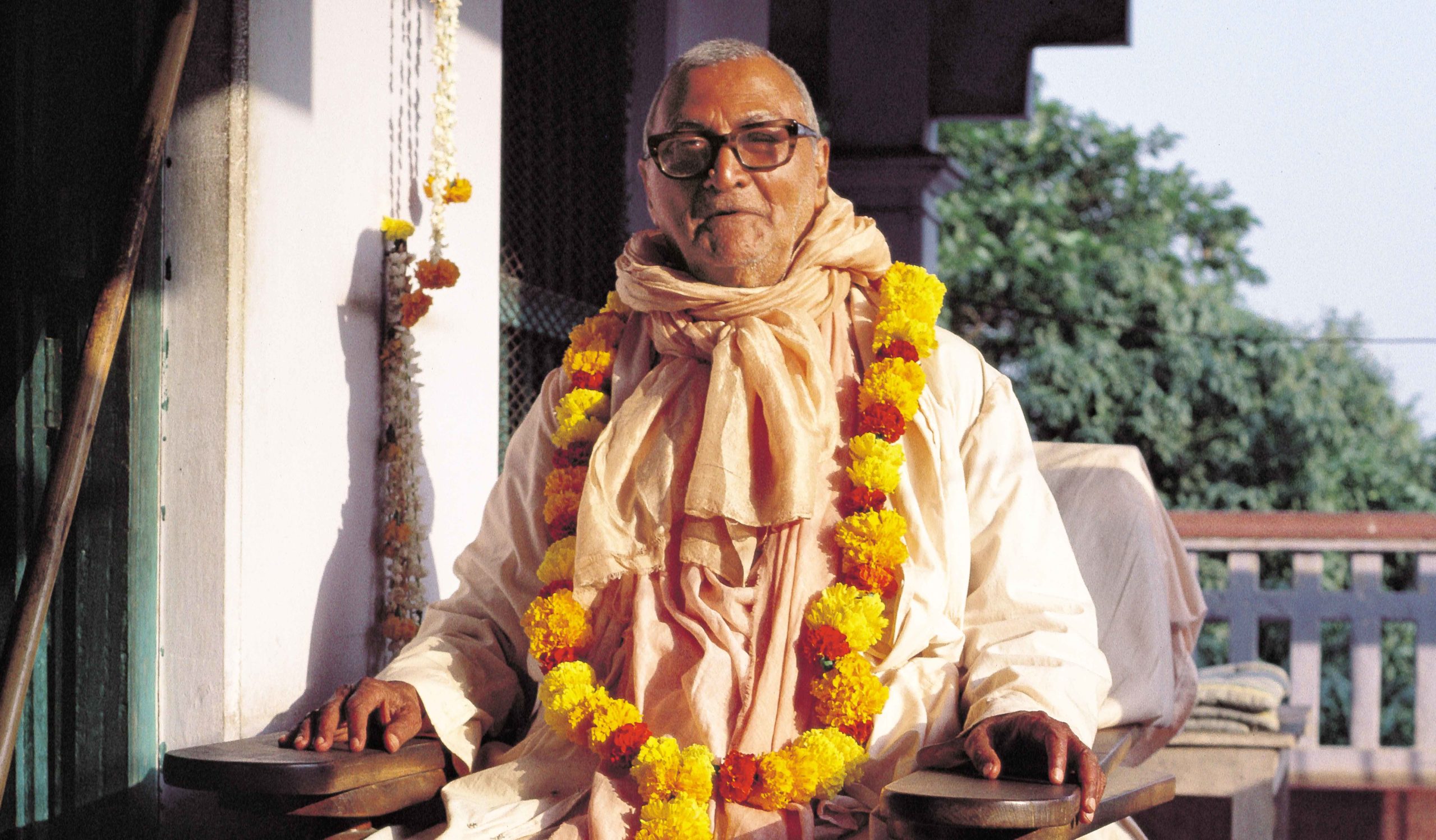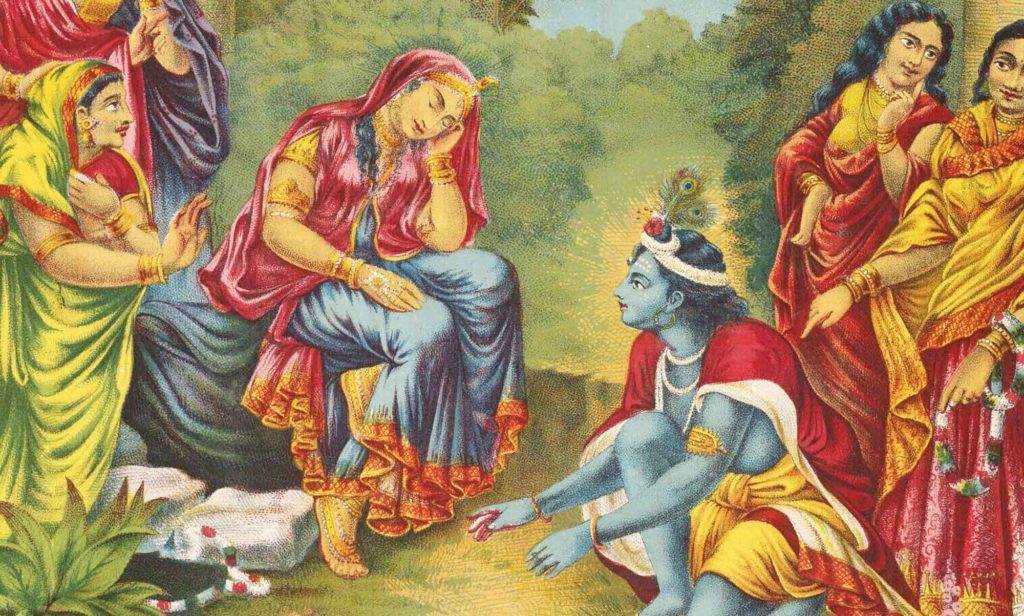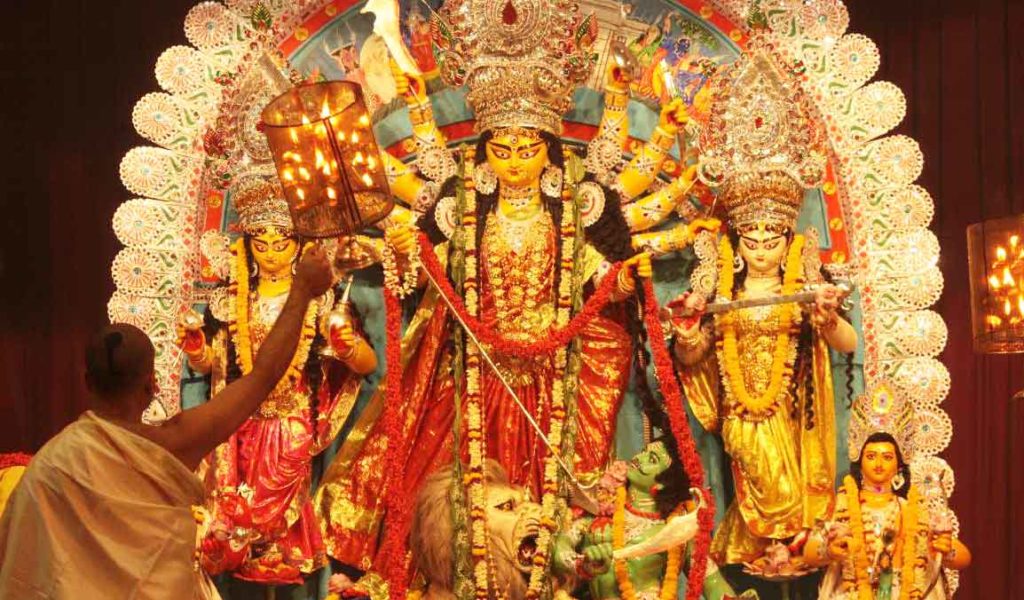Overview
In "Deviations of the Ācārya" Śrīla Śrīdhara Deva Gosvāmī Mahārāja explains the dangers that a guru may encounter, in particular the problem of pratiṣṭhā (fame and position).
We generally see that there is a tendency for the ācārya to depend more on his own disciples. He likes to go on with their help according to his free will, but he may not rely much on godbrothers because they are almost of equal status. He cannot order them forcefully to take up some duty and carry that out. The difference comes from there. But there is some scientific basis for that. There is the vātsalya-rasa and the sakhya-rasa. Sakhya-rasa is with godbrothers. Vātsalya-rasa is with the disciples and vātsalya-rasa is stronger than sakhya-rasa. Therefore vātsalya-rasa asserts itself, and the sakhya-rasa is slackened.
The ācārya must be very careful not to depend too much on the disciples. In the beginning at least, they should rely more upon friends and godbrothers. If they depend too soon on their disciples then their relationship with the friendly circle will be slackened. Authority is a part of pratiṣṭhā. When one comes in connection with vātsalya-rasa, the relation with sakhya-rasa decreases and some special discrimination arises. Stealthily they are drawn to their disciples, neglecting and becoming indifferent to the connection with their brothers. Such a tendency is sure to come and it is difficult to keep a balance. The brothers are neglected and the sons get more attention. In this way, the ācārya become partial. There is this possibility. And then there is some adhikāra and that is vulnerable in my consideration. When they come in close connection with their disciples they get freedom –– they are given an opportunity of absolute mastership. In that position it is very difficult to keep up the purity in contrast with that temptation, so there is the possibility of going down from the plane of ācārya.
The ācārya has got two disadvantages – deviation and partiality. Partiality means full freedom with his disciples. This relation is also more attractive to him. Deviation and partiality – these two things can take down the ācārya. These are the two enemies of an ācārya. The position of an ācārya is a dangerous position. It is full of temptations. A strong and sincere desire for the upper aspiration is an indispensable necessity in an ācārya. Otherwise he can’t maintain his position. He has to go down. He will think, “I am the monarch of all I survey!” In a particular circle he is monarch and such monarchy is mad! That is a great temptation and especially in relationship with the disciples and the brothers. They come and clash!
In these two ways there is danger and if the ācārya is not sufficiently conscious of the fact, he can’t retain his real position. He must be awake. When there is monarchy over men and money, it is difficult to maintain ones position as a servitor. The ego of mastership comes to attack. After all, we are wandering in the land of exploitation. The strong thrive and the weak have to go down. After all, it is an enervating plane. Attraction is on all sides. It is a very difficult position to maintain the pure position of an ācārya because he is given all possible honour – ācāryaṁ māṁ vijāniyāt. He is all in all. To maintain purity in that position is very, very difficult.
It is very easy to speak about, but very difficult to realise this point. We should be very wakeful to self-analysis. The general symptom is that the more one will go up, the more he will think, “I am going down.” This is the indirect method of measurement. It is internal. Externally he may show, but internally one should always be invoking that, “I am in want! Give more grace to me! I can’t maintain my position.” One who has got experience of such life can feel what is the defect.
When the madhyama-adhikārī guru comes in connection with bad association, the association of an atheist, māyāvādī scholars, or strī-saṅgi ekāsādhu (those who are attached to women) – he may come down and so many things can to be traced in him. Gradually he will come down from such a stage.
Of course, in that case the śiṣya who has got sufficient sukṛti can save him. Very rarely such things happen and it is most unfortunate. But still, we may consider it to be fortunate when he gets out of that and comes to the real source again. Then forgetting all his past history, he begins with a new life. To save one’s own self, then necessity is the mother of invention. Necessity has no law. We may be misguided in the worldly sense also. In many places we may be misguided and to awake from that association and to help us in a proper way, of course this possibility is at every step. We are living, we are independent we are endowed with free will. Free action and free decision is necessary at every step and that is also uncertain – what step should I take that is guaranteed to take me towards the right destination? So it is necessary to select the guide and sometimes in the selection of that guide there may also be some error. That is a great misfortune. But again our internal, innate fortune helps us. If while I am on my way the guide becomes influenced by some bad motive then I am to try to save myself in that case. Previously I put my all faith in that guide and I am to withdraw from him and take another independent guide. Still, if necessity arises, we cannot but do that.
We should consult others to be doubly sure. We must consult to see whether it is because I may be fallible. The disciple may consider himself to be fallible, so he will consult with another expert guide. “What to do, I am perplexed. I think that I should not keep any faith in my present guide. Perhaps he has become otherwise. His mentality has changed. I have seen so many signs around him that I am not able to put faith in that guide any longer. Please advise me what I should do?”
In this way intimate friends should be consulted. We may not put much faith within ourselves, but after consultation with so many intimate friends whom I have confidence in, then by their assurance and also with my internal voice and my conscience, I should pray to the Lord with all sincerity, “Please save me and give me another guide.”
Confidence is necessary. Śraddhā is necessary and a guide is necessary. It is inevitable. Once, I am deprived of confidence then I am betrayed. That does not mean that I am to suffer my whole life from that betrayal. There must be good sense all around and the higher power is always eager to help us. So with all our sincerity we must accept another guide according to our best understanding and go on. Our progress cannot be checked. That is also not desirable, so we must go onwards even changing our guide if necessary.
Generally the sign of deviation in the ācārya may be of three classes – first thing is that if I can detect that my Gurudeva is gradually loosing his attraction for his own guru and śāstra-upadeśa. Previously, he expressed his advice by quoting the scriptures and quoting the words of his own guru – that is gradually becoming absent in him. His attraction is fading on the higher prospect. Then there is pratiṣṭhā. Kanaka, kāminī, pratiṣṭhā – these are the three tests to be put whether one is a sadhu or not, or what degree of sādhu he is. The measurement will be pratiṣṭhā, kanaka, kāminī.
First, we should detect a deviation from his higher gurus – pratiṣṭhā. Then, more tendency to amass money and not to spend the money. Money may be collected, but that must be distributed for the service of the sampradāya, for the Lord, for propaganda. But if he does not pay much attention to utilising money in the service of the guru and the Vaiṣṇavas, but amasses it – that is second. Third – attraction towards the ladies. Of course he may come in connection with money and women and also with pratiṣṭhā. Pratiṣṭhā means honour to him from the disciples – that is also necessary but only for the purpose of the divine object, not for himself. But if we can detect that it is for his personal interest and not for the cause of the sampradāya that he is utilising these things, then we should be careful.
In the beginning we may neglect or ignore some instances, but if we find that it increases, then we have to inspect that carefully. We are to consult persons similar to our position and after consultation we can bring this to the higher sources – other ācāryas who are reliable. Then, when we find that, “Yes, what appeared to me first in a very small way is real and that is injurious and he is going down. To save myself I must try to take a step which may save me from that contamination. I shall try to save myself, and also I can try to save others who will fall prey to such exploitation.”
That must be with all sincerity. There is a possibility of this. It is mentioned in the śāstra and also practical examples are there. So we must not make progress in a slumber. We must go forward with our eyes always open.
Related Articles
- 📖 Prabhupāda Vijaya (Book)
- 📖 The Authorized Sri Caitanya Saraswata Parampara (Book)
- Guru-Bruva (The Pseudo-Guru) by Śrīla Bhaktisiddhānta Sarasvatī Ṭhākura
- Guru-tyāgī, Guru-bhogī and Guru-drohī by Swami B.V. Giri
- Who is Qualified to Succeed the Ācārya? by Śrīla Bhakti Rakṣaka Śrīdhara Mahārāja
- Deviations of the Ācārya by Śrīla Bhakti Rakṣaka Śrīdhara Mahārāja
- Śrīla Prabhupāda – in a Class by Himself? by Śrīla Bhakti Gaurava Narasiṅgha Mahārāja
- Big Fish in a Small Pond by Śrīla Bhakti Gaurava Narasiṅgha Mahārāja
- Guru-pādāśraya by Śrīla Bhakti Gaurava Narasiṅgha Mahārāja
- Can the Guru Make Mistakes? by Śrīla Bhakti Gaurava Narasiṅgha Mahārāja
- Change, Change, Change! by Śrīla Bhakti Gaurava Narasiṅgha Mahārāja
- Śrīla Prabhupāda – A Second Generation Devotee’s Perspective by Gaura Gopāla Dāsa
- The Change Disease by Gaura Gopāla Dāsa
Further Reading
Prema Dhāma Deva Stotram with the Narasiṅgha Sevaka Commentary – Verses 61-65
In verses 61 to 65 of 'Prema Dhāma Deva Stotram', Śrīla Śrīdhara Mahārāja narrates the pastime of Śrī Caitanya at Caṭaka Parvata In Purī and explains how the scriptures produced by Brahmā and Śiva are ultimately searching for the personality of Mahāprabhu who is merciful too all jīvas, no matter what their social position.
Prabhupāda Śrīla Sarasvatī Ṭhākura’s Visit to Ayodhyā
With the forthcoming observance of Śrī Rāma Navamī, we present 'Prabhupāda Śrīla Sarasvatī Ṭhākura’s Visit to Ayodhyā' written by Śrīla Bhaktisiddhānta Sarasvatī Ṭhākura Prabhupāda from The Gaudīyā magazine, Vol 3. Issue 21/ In December 1924, after visiting Benares and Prāyāga, Sarasvatī Ṭhākura visited the birth-site of Śrī Rāmācandra in Ayodhyā.
Śaraṇāgati – The Only Path to Auspiciousness
In this article, 'Śaraṇāgati - The Only Path to Auspiciousness', Dhīra Lalitā Dāsī analyses the process of śaraṇāgati (surrender) beginning with śraddhā (faith). She also discusses the role of śāstra and the Vaiṣṇava in connection with surrender.
Ātma Samīkṣā – The Value of Introspection
In this article, "Ātma Samīkṣā – The Value of Introspection" Kalki Dāsa highlights the importance of introspection in the life of a devotee and especially in relation to the worldly environment that surrounds us. He also explains how transcendental sound influences our capacity to introspect.
Prema Dhāma Deva Stotram with the Narasiṅgha Sevaka Commentary – Verses 61-65
In verses 61 to 65 of 'Prema Dhāma Deva Stotram', Śrīla Śrīdhara Mahārāja narrates the pastime of Śrī Caitanya at Caṭaka Parvata In Purī and explains how the scriptures produced by Brahmā and Śiva are ultimately searching for the personality of Mahāprabhu who is merciful too all jīvas, no matter what their social position.
Prabhupāda Śrīla Sarasvatī Ṭhākura’s Visit to Ayodhyā
With the forthcoming observance of Śrī Rāma Navamī, we present 'Prabhupāda Śrīla Sarasvatī Ṭhākura’s Visit to Ayodhyā' written by Śrīla Bhaktisiddhānta Sarasvatī Ṭhākura Prabhupāda from The Gaudīyā magazine, Vol 3. Issue 21/ In December 1924, after visiting Benares and Prāyāga, Sarasvatī Ṭhākura visited the birth-site of Śrī Rāmācandra in Ayodhyā.
Śaraṇāgati – The Only Path to Auspiciousness
In this article, 'Śaraṇāgati - The Only Path to Auspiciousness', Dhīra Lalitā Dāsī analyses the process of śaraṇāgati (surrender) beginning with śraddhā (faith). She also discusses the role of śāstra and the Vaiṣṇava in connection with surrender.
Ātma Samīkṣā – The Value of Introspection
In this article, "Ātma Samīkṣā – The Value of Introspection" Kalki Dāsa highlights the importance of introspection in the life of a devotee and especially in relation to the worldly environment that surrounds us. He also explains how transcendental sound influences our capacity to introspect.








